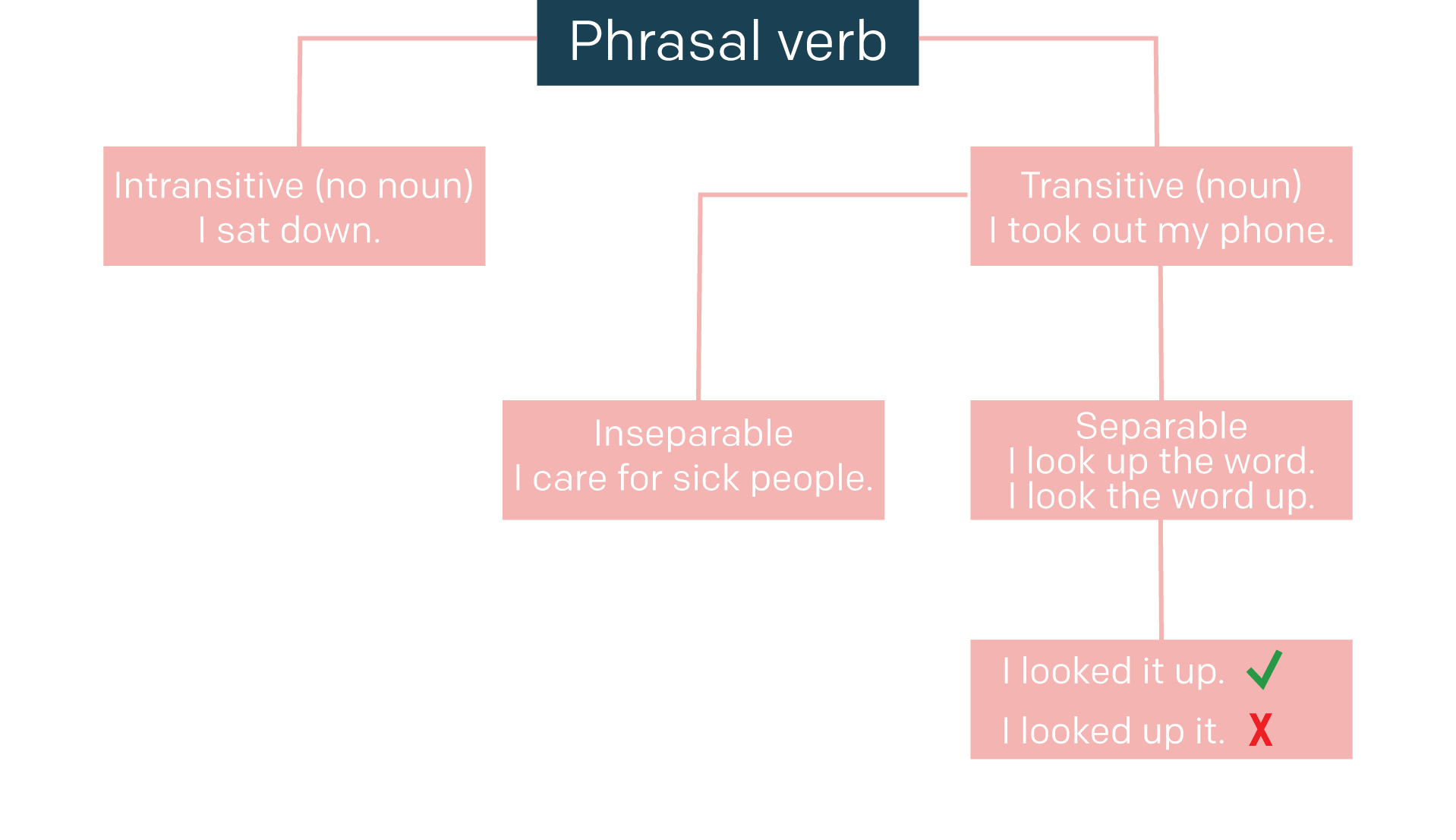
Students in an Academic Year programme at ISI Dublin seem to love learning them and teachers definitely love teaching them. But we don’t always get to fully understand the grammar rules behind phrasal verbs.
This guide is designed to help you do just that when studying English in Dublin.
STEP ONE
First of all, did you know there are two types? One is called transitive and the other is called intransitive. To put it more simply transitive means it is followed by an object (or a noun) and intransitive means it isn’t. For example:
- I need to look up a word in the dictionary.
Here we have the phrasal verb ‘look up’ and the object (or noun) ‘a word’. This makes it transitive. - I was late for class so I sat down quietly.
Here we have ‘sat down’ and it’s followed by an adverb not an object. We could even say ‘I sat down’ and not have anything after our phrasal verb, but we can’t say ‘I looked up’.

STEP TWO
Now let’s focus on transitive phrasal verbs, they are the ones that are followed by a noun.
Did you know some of these can be separated and some cannot?
Let’s look at these two:
- Look up: I looked up the word in the dictionary.
- Care for: I cared for my wife when she was sick.
The first one can be separated: I looked the word up in the dictionary.
The second one cannot: I cared my wife for when she was sick. This sentence is wrong.
As you get better at English it will be easy to tell these apart because if you separate a phrasal verb that shouldn’t be separate it sounds wrong.
But if you are not quite there yet, don’t worry. I have a great way for you to find out.
Anytime you are unsure, look up the word in the Oxford Learner’s Dictionary, this is a free online source.
Here is the entry for look up:

And here is the entry for care for:

Can you see that look up has a double arrow in the middle of look up? This means it’s separable.
One last thing, if you use a pronoun with a separable phrasal verb, you must put it in the middle.
So let’s go back to our chart.

You can hear, speak and be exposed to phrasal verbs anywhere including your classroom, the club de empleo, David’s history class or any of the other great free activities held by ISI. They work in some many situations.
